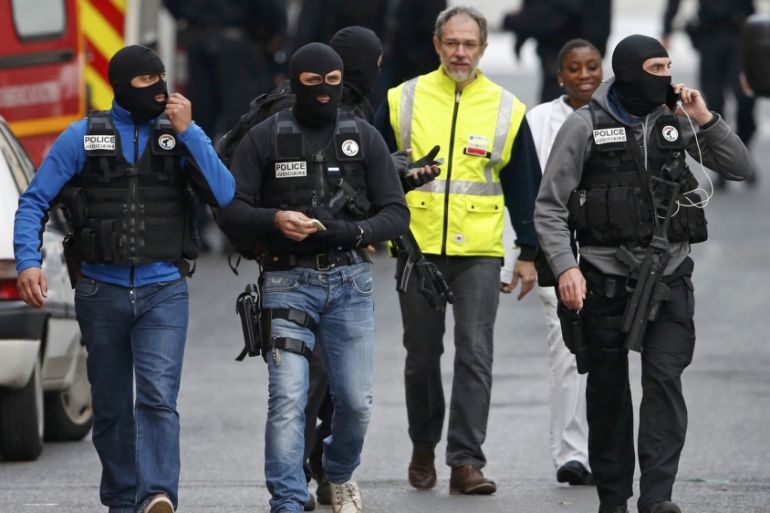French PM: Chemical and bio weapon attacks possible
French vote to extend state of emergency amid PM’s warnings ‘not to rule out anything’ following deadly Paris attacks.

France’s prime minister warned of an attack using “chemical or biological weapons” as MPs prepared to vote on the extension of the state of emergency in a parliamentary vote after last week’s deadly violence in Paris.
“We must not rule anything out, there is also the risk from chemical or biological weapons,” Manuel Valls said on Thursday, though he did not cite any specific intelligence on such a threat.
Keep reading
list of 4 itemsParis attacks suspect apologises to victims, seeks forgiveness
Main Paris attacks suspect Abdeslam says he ‘didn’t kill anyone’
Security high in Paris as biggest trial begins over 2015 attacks
In a speech to parliament, French President Francois Hollande asked representatives to extend the country’s state of emergency for three more months.
- Administrative arrest possible without judiciary mandate
- House arrest on direct order from the PM
- Police search allowed all day and night (whereas normally it\’s forbidden at night until 6am)
- Bars, music venues, gathering venues can be ordered closed by a state representative
Emergency powers allow police arrests without warrants and the ability to close public venues.
The prime minister can order people deemed “threats to national security” held under house arrest, and the seizure of passports or national identification cards.
“This bill will also encourage the closing of mosques if they become too radical,” Valls said. “This bill is the answer for the right of a free country facing chaos.”
- House arrest can be extended to any person deemed “a threat to national security”
- Passports and identification cards can be seized, under what an adviser to the PM considers “prevention more than repression”
- In case of violating house arrest, a possible sentence of three months in jail and $48,000 fine
- The military can undertake criminal investigations
- A curfew can be ordered by a state representative
Meanwhile, the prosecutor announced the key suspect in the Paris attacks, Abdelhamid Abaaoud, was killed in a raid on a French apartment block on Wednesday.
Another alleged attacker, Salah Abdeslam, is still on the run.
Climate change protests
France’s government has already banned planned marches during international climate talks in Paris from November 29 to December 12 because of security concerns.
Environmental activists have criticised the decision. The marches were expected to attract more than 200,000 people to put pressure on governments to cut greenhouse gas emissions.
“The government can prohibit these demonstrations but it cannot stop the mobilisation and it won’t prevent us strengthening the climate movement. Our voices will not be silenced,” French campaigner Nicolas Haeringer with the 350.org group said in a statement.
About 118 world leaders are expected to attend the UN COP21 summit, which is meant to nail down a binding global deal to limit rising carbon emissions.